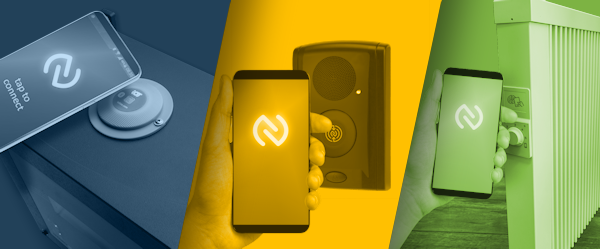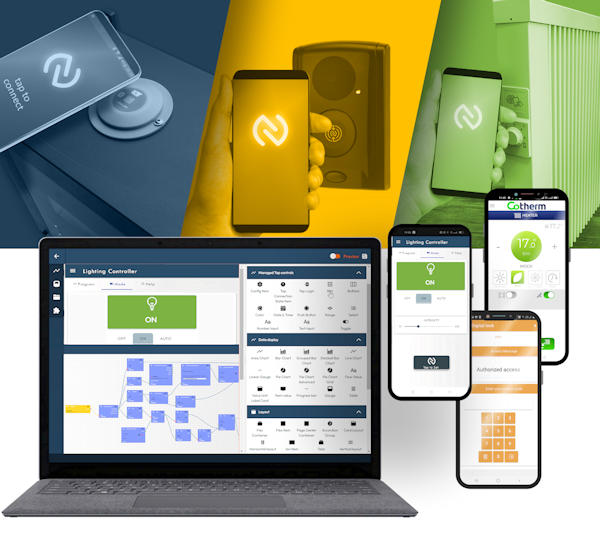Is NFC an IoT technology?
In 1999, when Kevin Ashton first coined the term “Internet of Things” (IoT), contactless technologies were very much a part of that vision. Notably, this centered on the idea of adding communication capability to “objects” and not just networking of more complex communicating systems.
Unlike wireless technologies, passive contactless devices are powered over-the-air by an active contactless device (like a reader or a mobile phone). They only consume energy during the communication and that energy can come entirely from the active device. This makes contactless ideal for bringing communication capability to simple objects.

Uses for Contactless Technology in the IoT
The long-range contactless technologies, referred to as RFID, are often used to track objects for logistics purposes. Their capabilities are often limited to transmitting a simple data, like a tracking or an ID code. On the other hand, Near Field Communication uses a different technology to communicate over a much shorter range, but with some interesting advantages.
Advantages of Near Field Communication in IoT Applications
NFC is a special type of contactless technology in the IoT because:
- It communicates over a very short range (0 - 5 cm) for security
- It is present in most iOS and Android mobile phones
- Users simply approach a mobile to a tag to connect (no codes, or addresses)
- An NFC tag is powered by the mobile phone during communication
- An NFC tag can harvest energy to power other circuits or devices
- An NFC tag can also execute its own software, process data, and communicate with other components.
NFC Uses in the IoT
NFC advantages make it ideal for several IoT use cases. These videos demonstrate a few of these:
- Access control applications
- On-site collection of data from sensors or systems
- On-site configuration of sensors or systems
- Secure pairing of other communication channels like Bluetooth & Wi-Fi
In all of these uses, the common factor is that the user is on-site and brings an NFC mobile into contact with the NFC-enabled object or system. The key advantages of using NFC are:
- Security of the connection
- Ease of connection
- Low power consumption
- Low cost of implementation
Mobile Apps and NFC
In these IoT uses cases, smartphones are ideal NFC readers. Widely present in all markets and easily adapted by creating apps, smartphones allow IoT product designers to put a perfectly adapted user interface directly in the hands of their customers.
Today, with no-code / low-code app design solutions like App Creator, any designer can create an NFC app rapidly, with minimal effort and with little pre-requisite knowledge of NFC and smartphones.
This video introduces the tool and its fundamental features. Or, you can try App Creator yourself. Just create your free account on the IoTize Cloud.




